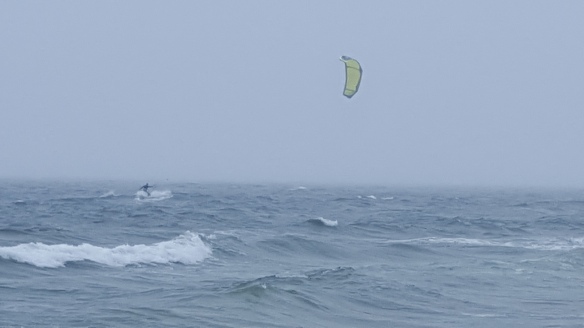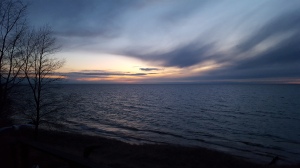 We tend to think of ourselves as separate from nature. We’re not. We’re part of this Earth. We came from the ocean and we’re made of the ocean. The ocean is in our blood. And we won’t be able to live without a healthy ocean.
We tend to think of ourselves as separate from nature. We’re not. We’re part of this Earth. We came from the ocean and we’re made of the ocean. The ocean is in our blood. And we won’t be able to live without a healthy ocean.
Despite all the negative ocean headlines, there’s still hope. One of the reasons I love nonprofit groups like Oceana and the Ocean Conservancy is that they work with politicians, lawyers, and businesses from all over the world to create real environmental change.
To celebrate World Oceans Day, here are a few major victories that have happened so far this year:
 Belize Bans Offshore Oil Drilling, Protecting the Largest Barrier Reef in the Americas
Belize Bans Offshore Oil Drilling, Protecting the Largest Barrier Reef in the Americas
January 2018: Belize made history when it signed into law a moratorium on offshore oil exploration and drilling in the entirety of Belizean waters, which contain the second largest barrier reef system in the world. The Belize Barrier Reef is home to nearly 1,400 species and is critical to the livelihood of more than half of Belize’s population due to its central role in tourism and fishing.
Chile Protects Juan Fernandez Islands and Wildlife Found Nowhere Else on Earth
February 2018: Chilean President Michelle Bachelet protected 262,000 square kilometers of ocean surrounding the Juan Fernandez Islands. These islands are home to wildlife found nowhere else on the planet. As a result of this announcement and other closures, 25 percent of Chile’s ocean is now protected as no-take marine parks.
 Seafloor Habitats Protected from Destructive Bottom Trawling off U.S. Pacific Coast
Seafloor Habitats Protected from Destructive Bottom Trawling off U.S. Pacific Coast
April 2018: The Pacific Fishery Management Council acted to protect more than 140,000 square miles of seafloor from bottom trawling, a destructive fishing practice in which heavy fishing gear is dragged across the seabed. This action will protect a unique variety of coral gardens, sponge beds, rocky reefs, and deep-sea ecosystems that provide nurseries, food and shelter for many species. This victory for ocean diversity will more than double the area of protected seafloor in U.S. waters off California, Oregon, and Washington. Once the new measures are implemented, more than 90 percent of the U.S. West Coast’s Exclusive Economic Zone will be protected from bottom trawling.
Keep hoping, keep dreaming, and keep acting for the ocean
We are all truly connected, which means that everything we do makes a difference. Whether we leave a piece of plastic on the beach or decide to pick it up, whether we use fertilizers and insecticides or organic gardening methods, it all makes a difference. If you’re interested in ocean conservation, find out what you can do through Oceana and the Ocean Conservancy. When individual voices join together, we can turn negative news into positive change.

 These days we need to do everything we can to protect and restore the ocean. One of the reasons I love nonprofit groups like
These days we need to do everything we can to protect and restore the ocean. One of the reasons I love nonprofit groups like  Deep-Sea Trawling Ban Protects 4.9 million km2 in European Oceans: Oceana in Europe campaigned with the Deep Sea Conservation Coalition to prohibit deep sea bottom trawling in northeast Atlantic waters. Bottom trawling is an invasive fishing practice that rakes the seafloor while catching unwanted ocean life and damaging coral. The European Parliament, Council and Commission reached an agreement that bans all trawling below 800 meters while halting bottom fishing activity below 400 meters if the presence of vulnerable marine ecosystems is demonstrated. These actions protect an area that’s larger than the European Union.
Deep-Sea Trawling Ban Protects 4.9 million km2 in European Oceans: Oceana in Europe campaigned with the Deep Sea Conservation Coalition to prohibit deep sea bottom trawling in northeast Atlantic waters. Bottom trawling is an invasive fishing practice that rakes the seafloor while catching unwanted ocean life and damaging coral. The European Parliament, Council and Commission reached an agreement that bans all trawling below 800 meters while halting bottom fishing activity below 400 meters if the presence of vulnerable marine ecosystems is demonstrated. These actions protect an area that’s larger than the European Union. Habitat Protection in the Strait of Sicily: Three Fisheries Restricted Areas were created in the Strait of Sicily, protecting 1,493 square km between Italy, Malta, and Tunisia from bottom trawling and preserving nursery areas for hake and deep-sea rose shrimp. The commission also prohibited commercial harvest of red coral. These decisions will help protect vulnerable habitats and allow fisheries in Mediterranean marine ecosystems to recover.
Habitat Protection in the Strait of Sicily: Three Fisheries Restricted Areas were created in the Strait of Sicily, protecting 1,493 square km between Italy, Malta, and Tunisia from bottom trawling and preserving nursery areas for hake and deep-sea rose shrimp. The commission also prohibited commercial harvest of red coral. These decisions will help protect vulnerable habitats and allow fisheries in Mediterranean marine ecosystems to recover.